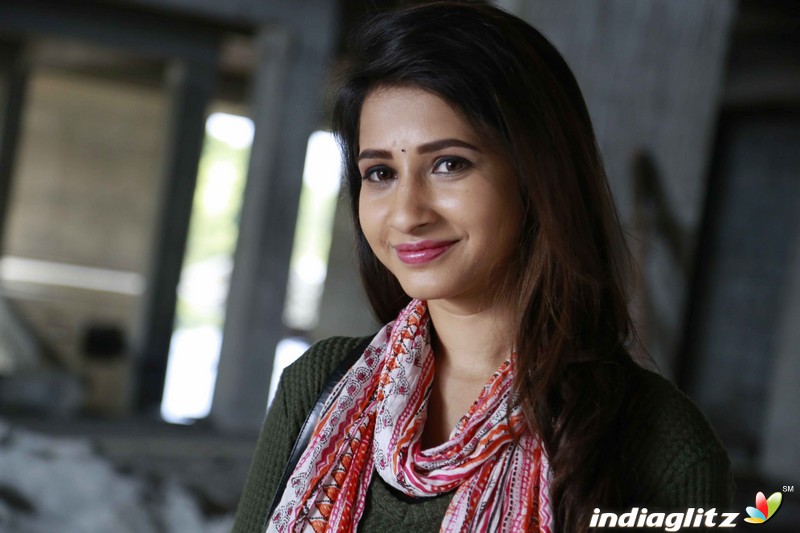
Vyasaraja nursed this intuitive presentiments in Kanaka and enabled him to blossom out into mystical ectasies in the same manner he had done for Purandara. He pleads for protection against sensuous temptations, sins of the spirit and aberrations of intellect and will. But undaunted, he struggled hard in this Dark night to find a sheet anchor at the feet of the Guru and through his ministrations to gain the glimpse of the divine. He was humbled and motified in the flesh by the visitations of misfortune. Like Purandara, Kanaka suffered poverty, privation, degradation, distress, acute misery without a wife or any soul to comfort him. Kanaka disdained servility and service at others feet or wandering for the satisfaction of the belly like a street dog without any sense of self-respect. He was possessed of Hari's invisible transcendental Beauty. Kanaka was totally absorbed in Hari Keshava! and he saw the vision of the Lord in the mountains, in moonlight, in sun-set, in living plants, in the flowing stream, in the lovely face of the child and the wrinkles of the old. Very often the Guru had to suffer embarrassment and veiled criticsm of his followers for the preferences he showed to Kanaka and Purandara, whi delighted the bhaktas by their heavenly compositions. Sri Vyasaraja who had this intuition, treated Kanaka though the lower order, on the same footing of equality with the rest. The Bhakta transcends the limitations of Varna and Asrama Dharma. Every one born in this world has the fundamental right to attain the Absolute by Bhakti.

Bhakti is the only means by which emancipation from Samsara can be realised. There is no separate regions in the empire of Bhakti, no distinctions of caste, class, creed, sex and servitude Dharma tapas and Acara, are not correlates of the absolute. Moksha Sadhana Samagram Bhaktireva Gariyasi!. Vaidika and Avaidika distinctions are invalid and only Bhakti is valid against the Absolute. He is perhaps, the only great non-brahmimical saint who by his Aparoksha Jnana and glimpses of the Absolute, neutralised the dissidences of Caste and groups and attempted at the solidarity of all castes by abrogating references to Jati, Kula and other distinctions. Kanaka in many of his Padas, reveals the unity and universality of spiritual experience, and flouts the iniquity of caste distinction and prejudices, born out of race, creed and class divisions.
#Kanaka life full#
There is a class of compositions called Kanaka Mundige full of abstract imagery, subtlety of metaphysics and inscrtable implications, challenging the finest in the Bhakta. Most of the compositions of Kanaka have the Mudrika Kagineleyadi Keshava. He composed hymns in moments of exaltation and when he sang them, he felt himself enveloped with melody and ecstatic lyric poetry. There is a popular story that Kanaka Dasa, on account of his low-caste, being rejected entrace at the temple at Udipi, went round the Prakaram and burst in tears of song, appealing to the Lord to give darshan when the idol turned round, made a slit in the wall where Kanaka Dasa sat and give darshan to him. He was already an author of Narasimha stora, Ramadhyana Mantra, Mohanatarangini before he became a follower of Sri Vyasaraja and followed most of the tenets of Madhva religion. Kanaka Dasa was of the warrior community, perhaps his defeat in the field of battle, directed him to the path of devotion. Kanaka Dasa spent most of his youth in the company with Sri Vyasaraja, who spoke in admiration of him as he did of Purandara Dasa. Kanaka was born to Biregowda and Beechamma, at Bada and hew as a saiva in the beginning, and later on became a close follower of Vaishnavism, and a devoted Bhakta of Venkateshwara of Tirumala Tirupati. Kanaka Dasa was a great disciple of Vyasarja, who is also the guru of another great saint-composer Purandara Dasa.

His songas and poetry was written in simple Kannada and reflects his belief that devotion to God lies beyond all man-made divisions such as caste and creed. He was born in Kaginele, Dharwad district in Karnataka state of India. Kanaka Dasa propagated Dwaita philosophy to masses through bhakti movement in Karnataka. Kanaka Dasa, who lived between 1509–1609, was a famous saint-composer of Karnataka and an ardent devotee of Lord Krishna. Biography the Kanaka Dasa- Bigraphies of Poets and Composers


 0 kommentar(er)
0 kommentar(er)
